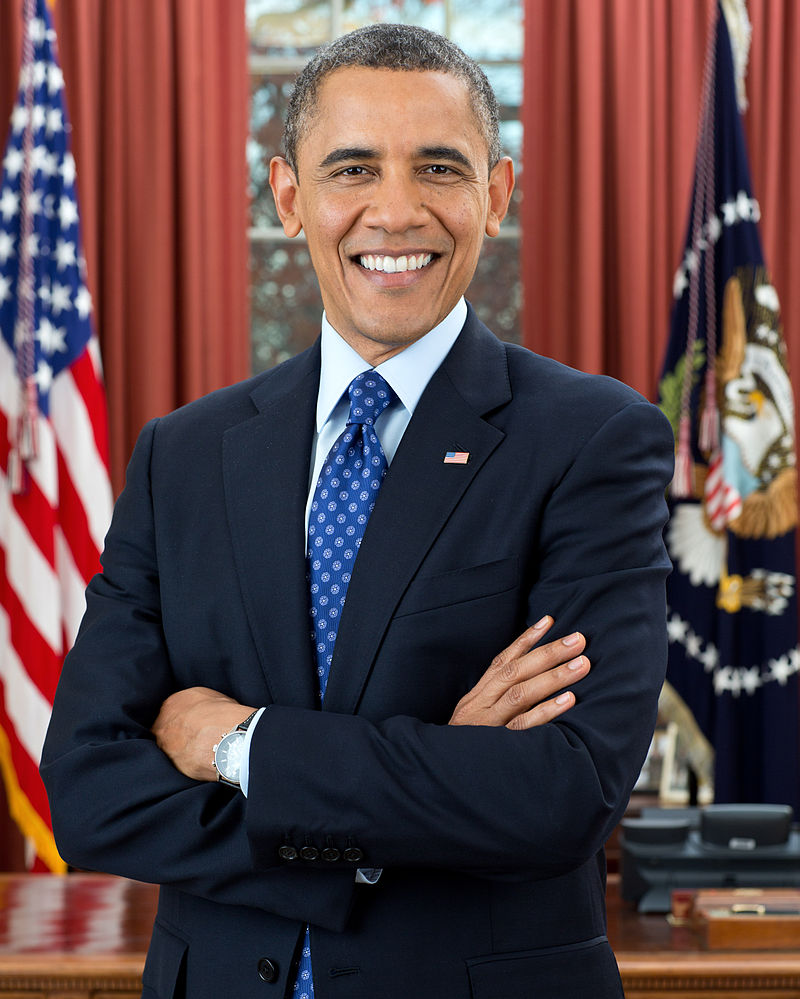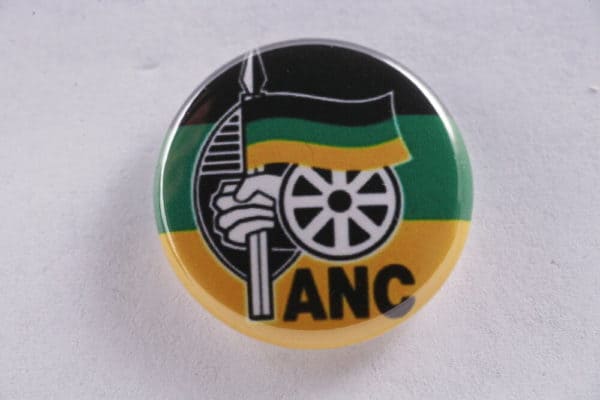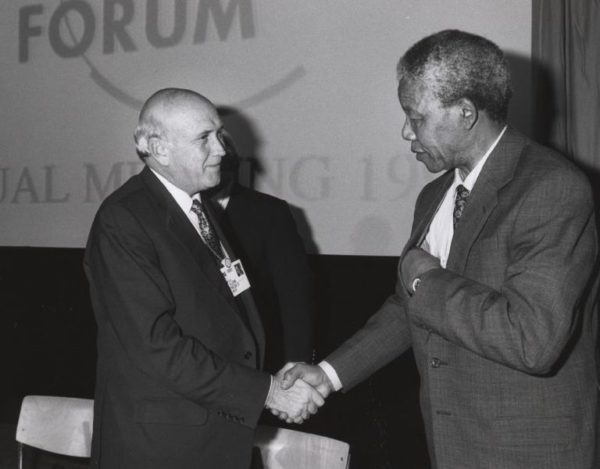Transition to Black Rule?
Jared Taylor, American Renaissance, November 14, 2008

The presidential election of 2008 brings to mind another vote that took place 16 years ago in South Africa: the referendum in which whites voted to turn power over to blacks. Though it has long been overshadowed by the 1994 general elections that brought the African National Congress (ANC) to power, it was the referendum of March 17, 1992, that ended white rule.
By 1992, President F. W. de Klerk and his National Party government had repealed all the major apartheid laws. The ANC had been unbanned, and Mr. de Klerk had started discussions with Mr. Mandela on a new constitution that would enfranchise blacks and “share power.”
Andries Treurnicht and his Conservative party led the opposition to these negotiations, saying the president had no authority to negotiate a new constitution. Mr. de Klerk decided to put the question to the people. If he won the referendum, he would push on to a new constitution; if he lost, he would resign and call a general election.
The referendum asked the following question: “Do you support continuation of the reform process which the State President began on February 2, 1990, and which is aimed at a new constitution through negotiation?” (It was on February 2, 1990, that Mr. de Klerk announced the unbanning of the ANC and the release of Mr. Mandela from prison.)
The National Party — the traditional party of the Afrikaners — mounted a massive campaign for a “yes” vote, warning that a “no” would mean more international sanctions and black violence. One of its campaign posters was of an armed member of the Afrikaner Resistance Movement — a militant white organization — with the slogan, “You can stop this man! Vote YES.” In other words, the real menace for South Africa was a white man with a gun.
The Conservative Party, which campaigned for a “no” vote, warned that “power sharing” was just another name for black rule, and that whites had the right and the duty to govern themselves.
How did the people of the Great Trek, the Battle of Blood River, and the Boer War vote? They feared international isolation more than they feared black rule; whites voted 68 to 31 percent for “continuation of the reform process.” Nor was this a decision forced upon Afrikaners by white English-speakers. Though some militant groups boycotted the referendum, all election analysts agree that a majority of Afrikaners voted “yes,” and some even believe there was more support among Afrikaners than British South Africans. Whites therefore had the chance to keep their country, but gave it away. That vote ensured the ANC victory of 1994 and everything that has followed.

American whites are not quite as eager as the South Africans were. In the November 4 election, only 43 percent voted for black rule — pardon me, for Barack Obama. Fifty-five percent of whites wanted John McCain to be their president but it was blacks and Hispanics who got the president they wanted, not whites. Every year, as the number of non-whites increases, whites will have less say about who rules them.
Entirely aside from politics or questions of competence or experience, the election of a president most whites did not want is a jarring symbol of lost autonomy. If their numbers continue to decline, whites will not get the schools, the neighborhoods, the culture — and ultimately, the country — they want.
Perhaps it is because whites have brought diminished status upon themselves that we are expected to take pride in it rather than fight to reverse it. As Paul Krugman explained helpfully in the New York Times, “If the election of our first African-American president didn’t stir you, if it didn’t leave you teary-eyed and proud of your country, there’s something wrong with you.” This means there is something wrong with at least 55 percent of whites, but that has been the Times’s position for years.
Dr. Krugman’s joy in Mr. Obama’s victory is shared by whites all around the world. “We have great hopes that we are standing at the dawn of a new era,” wrote the Norwegian daily Aftenposten. “One Giant Step for Mankind” read the front page of England’s Sun newspaper. A headline on the London Telegraph website declared: “Barack Obama Victory Allows Britain to Love US Again.” The Times modestly headlined its election story, “The New World.” Prime Minister Stephen Harper of Canada spoke of Mr. Obama’s “tremendous, historic” victory, and the Toronto Sun called it “an historic milestone like no other.” Le Monde in Paris noted that “from Left to Right, [French] politicians have been competing for superlatives with which to praise the election of Barack Obama.” Milan’s Corriere della Sera wrote that Mr. Obama was “the man who can save America from utter breakdown.”
This chorus of rejoicing has eerie parallels to how the world’s whites welcomed black rule in South Africa. In 1993, Mr. Mandela and Mr. de Klerk shared the Nobel Peace Prize for their new, “power-sharing” constitution. Mary McGrory of the Washington Post gushed only slightly more than most when she wrote in her May 12, 1994 column that “Nelson Mandela has won what the [Washington] Post calls ‘one of history’s sweetest victories over racial subjugation’ and he is going to keep it clean and beautiful so that newspaper readers will think they are reading scripture when they read dispatches from South Africa that cannot be read except through tears.”

Frederik de Klerk and Nelson Mandela. (Photo Credit: Copyright World Economic Forum)
Fourteen years later — just 14 years later — does anyone have second thoughts? Under white rule, South Africa was climbing steadily in the UN’s Human Development Index. It reversed course the first year of black rule and has dropped ever since. South Africa can no longer keep accurate crime statistics, but it is unquestionably one of the most dangerous places on earth. Anyone who can afford to lives in a private fortress, and carjacking is so common it is considered foolish to stop at a red light after dark. Amazon.com limits shipping to South Africa because postal workers steal so many packages. Interpol reports that South Africa has the highest rape rate in the world — and the highest AIDS rate. About one-fifth of South African men admit they have raped a woman, and an estimated 35 percent of the armed forces have AIDS. Race preferences for blacks are so ruthless that approximately 50 percent of white men are self-employed and nearly a million whites have emigrated, most citing crime and race preferences.
Surely, not even Mary McGrory would think this sounds like the Book of Matthew. And how about Mr. de Klerk? Would he not give up a hundred Nobel Peace Prizes for a country in which his grandchildren could be safe and proud?
Of course, our election is different from the South African referendum but the effect is the same: Whites are placing their destinies in the hands of others. The South Africans did it suddenly; we are doing it gradually.
Let us hope whites all over the world save their newspapers from November 5, 2008, with their extravagant headlines and dizzy hopes. Let them reread them 10 or 15 years from now — and let them think of South Africa.














